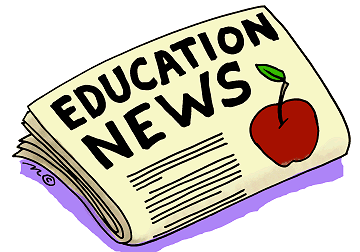The most obvious texts a good academic writer reads include textbooks, journals, essays and studies relating to his or her own field. After all, it would be silly reading books on chemistry if you spend your time writing sociology essays. If you want to improve your overall writing skill and read modern academic writers read, then here are eight of the best.
1 – Words are Categorical series
(Brian P. Cleary)
Most say this book is suitable for ESL students, but if you are just starting out, you really need to read this book. There are plenty of people that were born in English speaking countries and have gone through school up to the age of 16yrs old and yet still do not understand how “its” and “it’s” works. Get to grips with the basics again before you even consider digging deeper.
2 – Eats Shoots & Leaves: The Zero Tolerance Approach to Punctuation
(Lynne Truss)
The title of this book is based on the joke about the Panda. Incorrectly punctuated the words “Eats, Shoots & Leaves” can mean two very different things. It is a book that allows you to get to grips with punctuation in a big way without being too difficult to understand. This is another book that may seem a little beneath the average English-speaking person, but when you consider that many US brands are removing the apostrophe from their name because people do not understand them, it stands to reason that you at least try this book before you start writing.
3 – MacMillan English School Books
(MacMillan writing group)
If English is your second language, you need to read this series of books. English is a complex and difficult language to learn, and these books take you through the learning process slowly but progressively. They are also very easy to pick up and flip open at any page and start learning. They are good for people with poor English skills that want to improve, and are perfect for ESL students.
4 – The Mother Tongue – English, and How It Got That Way
(Bill Bryson)
This book explains the origins of the English language and will help you understand why you find lots of foreign words that seem to exist within the English language. It also explains why there are so many linguistic cognates in the world. If you want to fully understand how to use and manipulate the English language, it is a good idea to get to grips with how it works and why it exists the way it does.
5 – The Big Book of Words You Should Know
(David Olsen, Justin Cord Hayes, and Michelle Bevilacqua)
You can watch a professional writer’s head spin if you say to him/her, “I don’t need to learn new words or big words, I can just say it like I do.”
A professional writer will spit up his cognac and drop his Romeo & Juliet cigar in shock. You have to learn a wide range of words so you can write clearly and concisely. People do not want to read twenty words when one would have sufficed and people do not want to read the same repetitive garbled trot on every page. They want an eloquently and beautifully written piece of text, and this book is going to expand your vocabulary so that you consistently engage and entertain your readers.
6 – The Elements of Style
(William Strunk Jr. & E.B. White)
This book should speak for itself, but just in case you have never heard of it, it is one of the best reference books on the English language, grammar and style. All of the writers that completed a poll at review blog http://www.top10writers.comagreed that this book should be in the library of every person that makes a living writing or that has to write for school, college or University.
7 – The Art of Fiction: Notes on Craft for Young Writers
(John Gardner)
Most writers want to dabble in fiction at some point in their career or in their life. To help this it’s advisable to learn how to develop characters, story arcs, and avoid clichés. Sadly, it cannot cover clichés as they happen, such as the current one for the turn-of-phrase, “Coursing through his/her veins.” But, it can help you avoid common rookie mistakes. Even if you are not planning to write fiction, you could read the book to expand your knowledge of writing styles to make your writing a little less stale.
8 – The Curious Case of the Misplaced Modifier
(Bonnie Trenga)
Even veteran writers are going to make mistakes from time to time. Bonnie wrote a book on the misplaced modifier, and even if you are an amateur writer, you should read it. It reminds you about word placement. For example, “Mary served sandwiches to the kids on paper plates.” Is Mary serving sandwiches on paper plates, or are the kids on paper plates?

